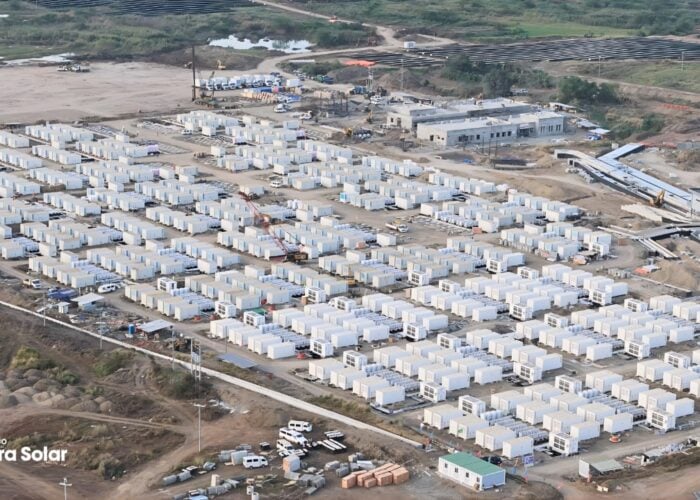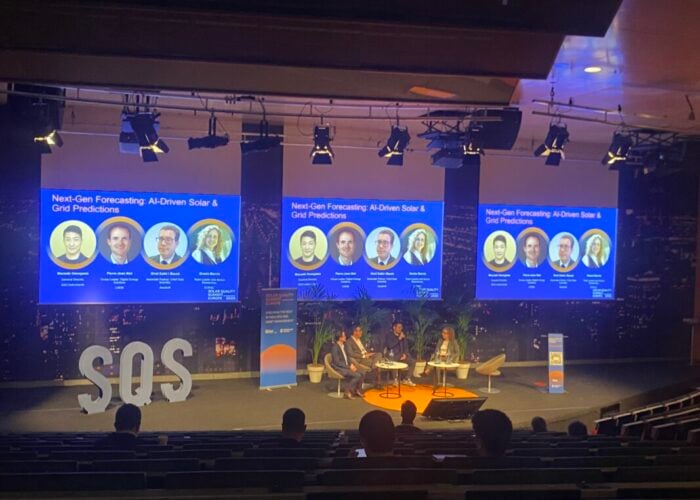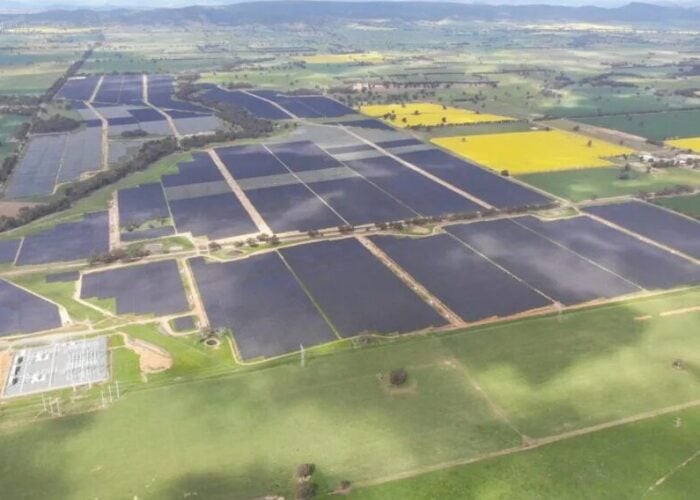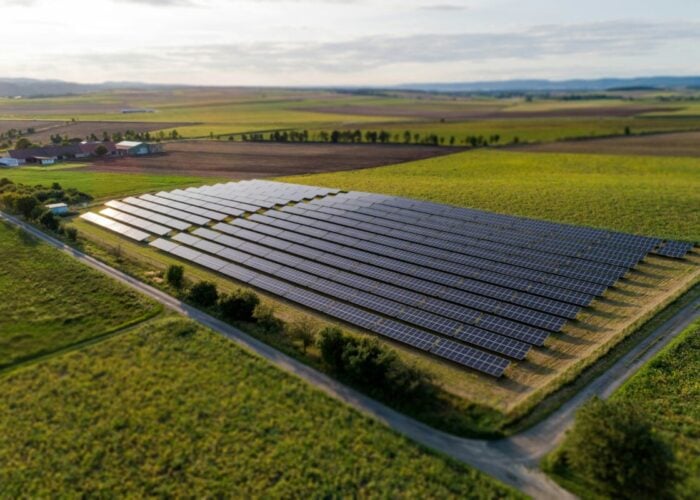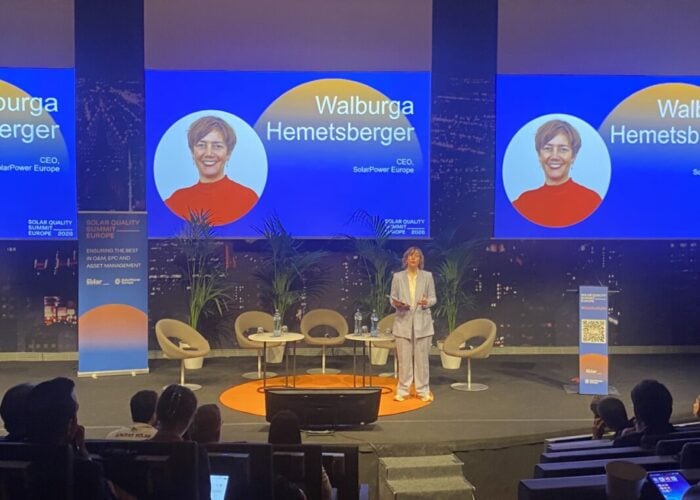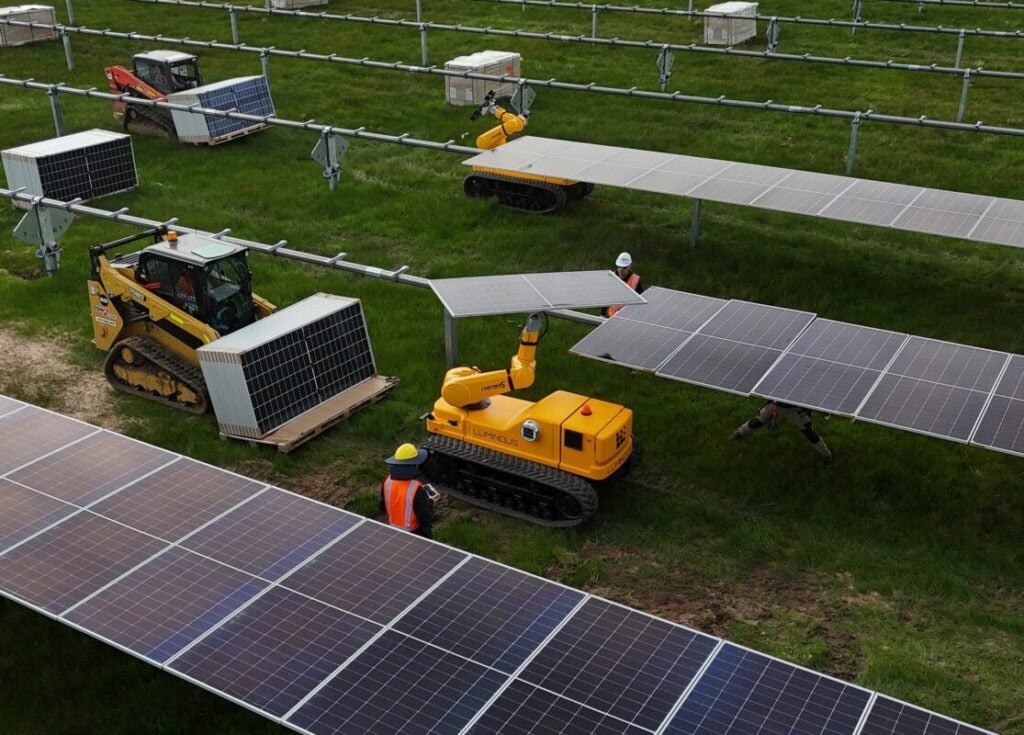
Luminous Robotics has successfully completed its first international deployment of AI-powered solar installation robots at Engie’s 250MW Goorambat East Solar Farm in Victoria, Australia.
The demonstration marks a milestone for automated solar construction technology as the industry pursues enhanced efficiency and cost reduction in utility-scale project development.
Try Premium for just $1
- Full premium access for the first month at only $1
- Converts to an annual rate after 30 days unless cancelled
- Cancel anytime during the trial period
Premium Benefits
- Expert industry analysis and interviews
- Digital access to PV Tech Power journal
- Exclusive event discounts
Or get the full Premium subscription right away
Or continue reading this article for free
The LUMI robot system, which autonomously places solar modules onto racking structures using AI, exceeded target production rates during the trial at the Goorambat East facility near Benalla.
Luminous said this deployment represents the first operation of Luminous Robotics’ technology outside the US, positioning Australia as a testing ground for advanced solar construction automation.
Engie confirmed that, with the help of the AI-powered robots, the Goorambat East Solar Farm construction has progressed ahead of schedule.
The project commenced commissioning activities at the start of this month, with first energisation expected by the end of October 2025. Full energisation remains on target for mid-2026, according to ENGIE’s construction timeline.
Robotics technology demonstrates industry transformation
The LUMI system deployment formed part of broader robotics testing at the Goorambat East site, which evaluated three robotic systems including piling installation robots. The autonomous solar module placement technology demonstrated the potential for enhanced productivity in utility-scale solar construction.
“This has included testing three robotic systems to install pilings and more recently solar panels, with American company Luminous testing their LUMI system outside of the US for the first time and demonstrating the future of solar farm construction,” explained Justin Webb, Engie’s site representative.
The intended productivity improvements from autonomous systems could reduce renewable energy project costs and enable faster construction timelines, potentially lowering energy costs for consumers and facilitating increased solar PV power plant development.
The robotics deployment addresses multiple industry challenges including workforce safety, project efficiency and construction in challenging environments.
“These robots also require skilled technicians to operate them, thus upskilling the current renewable energy workforce and enabling more productivity,” Webb noted.
“The use of autonomous robots could also have large benefits for the construction of solar farms in remote and inhospitable areas, such as is deserts, where the climate could be dangerous for human staff.”
Long-term development of robotic systems could reduce health and safety risks by minimising manual handling of heavy solar modules, according to Engie’s assessment of the technology trial.
Luminous Robotics received AU$4.9 million (US$3.2 million) from the Australian Renewable Energy Agency’s (ARENA) AU$100 million Solar ScaleUp Challenge in July, supporting the development and deployment of solar construction robotics. The funding enabled the company to conduct its first international trial in one of the world’s most advanced solar markets.
“By engaging with ARENA, Bouygues and Equans, Luminous was able to deploy its first LUMI S4 fleet during construction of ENGIE’s Goorambat East Solar Farm,” said Jay M. Wong, CEO and founder of Luminous Robotics.
The Australian deployment allowed Luminous to capture performance data and real-world impact metrics needed to drive global adoption of automated solar construction technology.
“We were thrilled to showcase the future of solar construction in Australia, one of the world’s most advanced solar markets,” Wong added.
Data sharing supports industry development
Luminous Robotics and ARENA plan to release solar construction’s largest robotics dataset as open source in the coming months. The data sharing initiative aims to accelerate industry adoption of automated construction technologies and support further innovation in solar installation robotics.
“Deploying our LUMI fleet in Australia allowed us to capture the data, performance insights and real-world impact needed to drive global adoption – the kind of scale and transformation we founded Luminous to achieve,” Wong explained.
Bouygues Construction Australia and Equans Solar & Storage Australia serve as primary contractors for the Goorambat East Solar Farm construction. The partnership facilitated the robotics testing programme alongside conventional construction activities.
“Our LUMI robots exceeded our target production rate and fuelled by support from ARENA, we’re keen to accelerate our next phase,” Wong confirmed.
ARENA launched the Solar ScaleUp Challenge on 19 June 2024, running for eight weeks. The initiative invited professionals from across the international solar landscape, such as financiers, solar customers, engineers, and developers, to break down barriers to installing, operating, and maintaining solar PV projects.
Later that year, the organisation launched the AU$1 billion Solar Sunshot Program, which aims to support domestic module manufacturing. Last month, the first recipient of this scheme was revealed as prefabricated ‘folding’ solar structure provider 5B.
PV Tech Premium explored the Solar Sunshot and Solar ScaleUp initiatives in PV Tech Power Volume 40.


